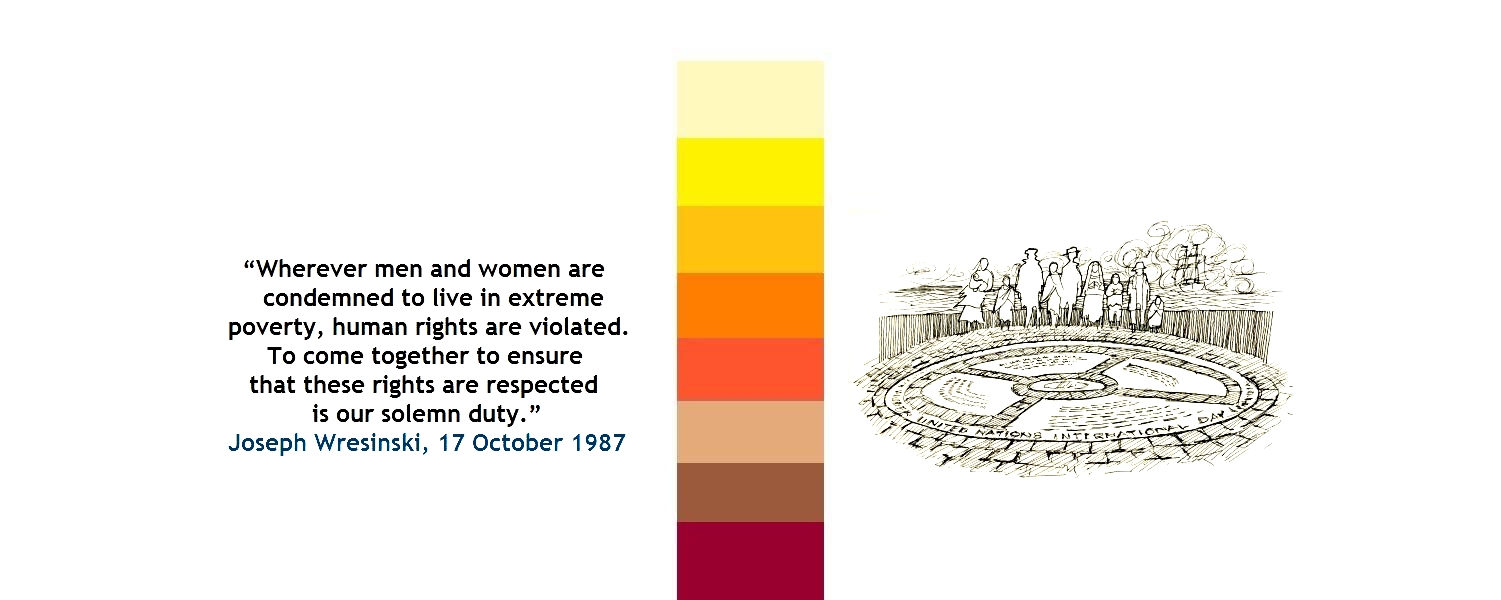Inspired by the international theme– “Ending Social and Institutional Maltreatment: Acting together for just, peaceful and inclusive societies”—the Irish theme for the International Day for the Eradication of Poverty, 2024, focuses on breaking barriers and building bridges. At the core of this idea, there is a double movement which suggests that where and when barriers are broken, more needs to happen to ensure that they remain broken and thus it is as important to extend the hand of solidarity to those experiencing poverty as it is to highlight the reasons why poverty exists in the first place. In other words, it is not only important to identify barriers for people experiencing poverty so that they may be broken, but to also address the causes of these barriers so that may be forever left to one side.
With this in mind the idea of breaking barriers and building bridges must be parsed so that it becomes possible to ask what barriers need to be broken in the context of poverty, deprivation and socioeconomic discrimination and what bridges need to be both built and crossed in order to arrive at meaningful and substantive change and recognition. Developing a theme to go towards answering these questions has meant identifying a list of potential barriers alongside a list of ways to overcome and bridge away from these barriers.
Working through this list the first barrier that people experiencing poverty can often face is named as discrimination. To overcome, indeed, to break this barrier and bridge away from it, we need to develop laws and policies that protect and treat as equal all people regardless of socioeconomic status. This is essential as discrimination based on socioeconomic status, like other forms of discrimination, has real and tangible effects and can limit the potential of those who bear its brunt. Related to this is the social stigma that so very often attaches to lived experiences of poverty and which also has real and tangible effects. If stigma leading to forms of exclusion is the barrier, then meaningful pathways towards social inclusion and destigmatisation is the bridge.
Likewise persistent poverty and inadequate levels of income are named in this year’s theme as real and consistent barriers within the broad experience of poverty that prevent people from taking a meaningful part in society and community and from living fulfilled and meaningful lives. To overcome this, to break these barriers, we must seek to eradicate poverty in the first instance and to bridge away from poverty as a barrier to a meaningful life by establishing minimum standards of living, standards that sit far above the poverty line and below which no person should be allowed to fall regardless or any circumstance or characteristic. As is noted in the list of barriers and potential bridges, this is a matter of moving from a system of unjust redistribution in which a smaller and smaller number of people hold the vast bulk of wealth and towards a system of just redistribution where the wealth created within our society is distributed to benefit all of its members.
Having identified barriers and bridges in the context of lived experiences of poverty, deprivation and discrimination and having also addressed the political and moral economies that allow such experiences to persist while also addressing how these might be rethought and overcome, the final barriers listed in this year’s theme build on these ideas by bringing them to a natural point of confluence and is concerned with rights. To allow people to continue to experience poverty is a denial of both rights and potential. To allow people to persist at standards that would be unacceptable to most is a gross violation of rights. To allow a mode of economic and social organisation that casts some persons to one side, condemned to live a life in poverty is a gross injustice. To seek to lift people out of poverty and ensure a dignified minimum standard is to seek to vindicate rights. To seek to challenge how we organise our economy and society so that we may strive for dignity and inclusion is to seek social justice. To do all of this involves both breaking barriers and building bridges and so this year’s theme for the 17th of October invites us all to consider the barriers we, as a society, need to break and the bridges we need build to ensure such barriers remain broken. This is a powerful message and one that should resonate with all those who wish to see and effect change.
Dr Joe Whelan,
17th of October Committee Member,
Assistant Professor,
School of Social Work and Social Policy,
The University of Dublin,
Trinity College.
